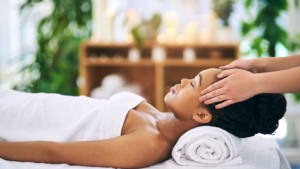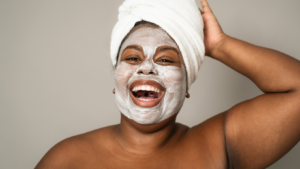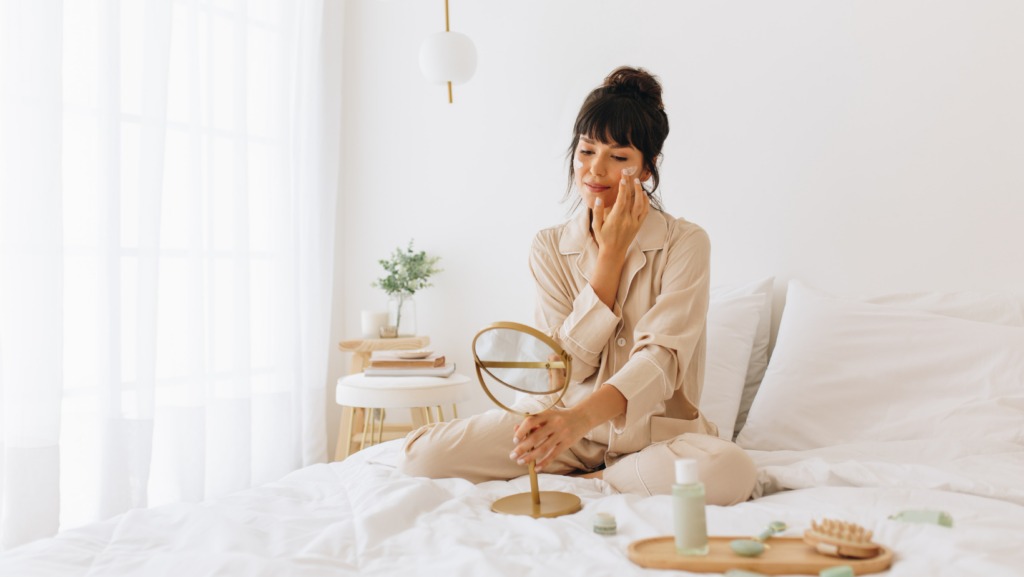In the hustle and bustle of modern life, self-care often takes a backseat. But, it’s time to change that narrative and prioritize our well-being with a nourishing night routine. This article will delve into the importance and benefits of a self-care night routine and guide you on how to establish one.
A night routine isn’t just about skincare or a warm cup of chamomile tea before bed. It’s about creating a holistic routine that caters to your physical, mental, and emotional health. We’ll explore various techniques and practices that can help you unwind, rejuvenate, and prepare for a restful sleep.
So, whether you’re a self-care novice or looking to enhance your current routine, this article is your guide to creating a night routine that’s not just about ticking boxes, but truly taking care of yourself.
Acts of Self Care
 Placing emphasis on a self care night routine presents incredible benefits to not only physical health, but mental and emotional well-being. This section offers a deeper dive into why it’s ideal to prioritize this. Night routines play a pivotal role in self care. They bridge the gap between the stresses of the day, enabling relaxation and rejuvenation. For instance, incorporating practices such as yoga or reading at night can contribute to unwinding the accumulated tensions of the day. Essential night routine elements such as skincare, physical hygiene practices, and the establishment of proper sleep patterns, significantly enhance one’s overall outlook on life. These routines, by fostering a sense of tranquility, prime the body for optimal sleep, which is a cornerstone of great health and high-quality life.
Placing emphasis on a self care night routine presents incredible benefits to not only physical health, but mental and emotional well-being. This section offers a deeper dive into why it’s ideal to prioritize this. Night routines play a pivotal role in self care. They bridge the gap between the stresses of the day, enabling relaxation and rejuvenation. For instance, incorporating practices such as yoga or reading at night can contribute to unwinding the accumulated tensions of the day. Essential night routine elements such as skincare, physical hygiene practices, and the establishment of proper sleep patterns, significantly enhance one’s overall outlook on life. These routines, by fostering a sense of tranquility, prime the body for optimal sleep, which is a cornerstone of great health and high-quality life.
Establishing Your Personal Self Care Night Routine
 Developing a personal self-care night routine aligns with an individual’s unique needs and preferences, demonstrating a tailored approach to enhance wellbeing. When formulating a self-care routine, it’s crucial to comprehend what an individual requires for relaxation and rejuvenation. These requirements can vary significantly, from a deep skincare regimen, soothing music, to reading a book. It’s advisable to assess and identify what provides a sense of tranquility and contentment. For some, a few yoga stretches can alleviate stress, while others might prefer a cup of herbal tea. Likewise, a focused skincare routine might be a priority for someone else. Recognizing one’s needs lays the first cornerstone of a beneficial self-care night routine.
Developing a personal self-care night routine aligns with an individual’s unique needs and preferences, demonstrating a tailored approach to enhance wellbeing. When formulating a self-care routine, it’s crucial to comprehend what an individual requires for relaxation and rejuvenation. These requirements can vary significantly, from a deep skincare regimen, soothing music, to reading a book. It’s advisable to assess and identify what provides a sense of tranquility and contentment. For some, a few yoga stretches can alleviate stress, while others might prefer a cup of herbal tea. Likewise, a focused skincare routine might be a priority for someone else. Recognizing one’s needs lays the first cornerstone of a beneficial self-care night routine.
Self Care Night Routine Ideas and Practices
Following a self-care night routine aids in relaxation and prioritizes well-being. This section delves into some considerations and practices crucial for an optimized routine.
Skincare isn’t just about aesthetics. It signifies a profound commitment to one’s physical health. With a myriad of skincare products on the market, individual preferences dictate the selection. Some might opt for a revitalizing face mask, while others may prefer a simple cleansing routine. Examples of popular routines include the use of cleansers, toners, and moisturizers, further accentuated by serums, eye creams, and lip balms for a comprehensive approach. Coupled with gently applied movements and proper hygiene, skincare offers a moment of serenity and self-care that can improve the overall quality of your evening.
A Place for Mindfulness: Bedroom Environment
 The bedroom environment plays an integral role in promoting mindfulness and relaxation. It’s not solely about the room’s appearance, but about the ambiance it fosters. Offering an example, a comfortable mattress, adequately dimmed lights, and room temperature around 65 degrees Fahrenheit, commonly form the fundamentals of a tranquil bedroom setup. Aromatherapy, whether through candles or essential oil diffusers, with scents like lavender and chamomile, has also been documented to facilitate a peaceful environment conducive to relaxation and quality sleep, ultimately contributing to an effective self-care night routine.
The bedroom environment plays an integral role in promoting mindfulness and relaxation. It’s not solely about the room’s appearance, but about the ambiance it fosters. Offering an example, a comfortable mattress, adequately dimmed lights, and room temperature around 65 degrees Fahrenheit, commonly form the fundamentals of a tranquil bedroom setup. Aromatherapy, whether through candles or essential oil diffusers, with scents like lavender and chamomile, has also been documented to facilitate a peaceful environment conducive to relaxation and quality sleep, ultimately contributing to an effective self-care night routine.
Practicing good sleep hygiene is key to attaining healthier sleep patterns, ultimately benefiting an individual’s mental and physical well-being. Examples of these golden sleep hygiene rules include avoiding caffeine and screens for at least an hour before sleep, ensuring a peaceful and dark sleep environment, and maintaining a consistent sleep schedule.

